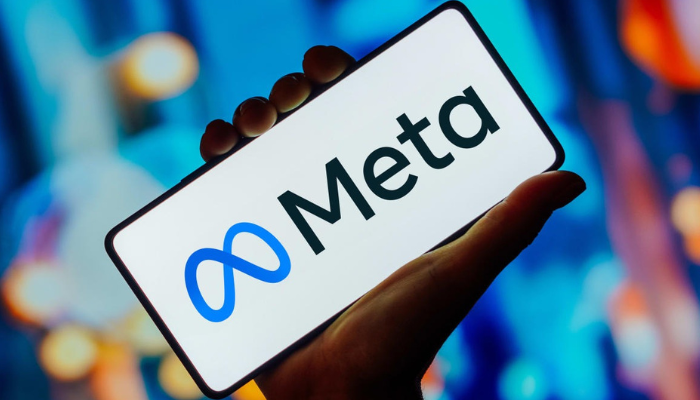Meta’s financial report unveils its most lucrative quarter in years
4 min read
The company reports third-quarter revenue of $34.15 billion, exceeding the anticipated $33.56 billion, resulting in a surge in shares during after-hours trading
In the third-quarter earnings report, Meta surpassed analysts’ projections, reinforcing investors’ confidence in the tech company that had previously encountered turbulence over the past few years. CEO Mark Zuckerberg mentioned that the company achieved its “highest operating margin in two years.”
The company revealed a third-quarter revenue of $34.15 billion, surpassing the anticipated $33.56 billion, indicating a 23% year-over-year increase. Subsequent to this announcement, the company’s shares saw a rise in after-hours trading, boosting investor confidence. This favorable outcome follows Meta’s efforts over the past few years to reshape its business model and extend beyond its initial social media-focused empire. It’s important to highlight that advertising remains the primary driver of its revenue.
Zuckerberg pointed out that there was a 7% increase in the total time users spent on Facebook, and the time allocated to Instagram experienced a 6% rise. This growth was credited to improvements in content recommendations resulting from the company’s increased emphasis on algorithmically suggesting content to users.
Reels, Meta’s short-form video platform, has driven a 40% surge in the time users devote to Instagram since its introduction, and, as per Zuckerberg, it continues to exhibit exceptional performance. He foresees that the next pivotal focus of their business strategy will involve interacting with businesses, likely facilitated by artificial intelligence.
Similar to numerous tech companies, Meta has actively embraced the growing trend of artificial intelligence, placing a strong emphasis on AI tools in recent financial reports. The impressive outcomes in Meta’s recent report indicate that these efforts are generating significant returns, as noted by Jesse Cohen, a senior analyst at Investing.com, who characterized it as an outstanding quarter for the tech company.
Cohen commented, “Meta not only surpassed expectations in terms of both earnings per share and revenue but did so by a considerable margin. The social media company is reaping the benefits of its expanding user base, the increasing adoption of Reels, and its innovative AI initiatives.”
This report signifies Meta’s most lucrative quarter in years, building on two preceding quarters that had already surpassed expectations. Significantly, this development comes in the midst of a significant legal challenge for Meta, the parent company of Instagram, Facebook, and WhatsApp. Just a day prior, the company encountered a substantial lawsuit filed by attorneys general from 41 states. These states are suing Meta, asserting that the company’s social media platforms have negatively impacted the mental health of young users due to the addictive nature of these platforms.
This legal challenge is the most recent hurdle for Meta, as the company has contended with challenges in its fundamental advertising business amidst a broader economic downturn. Additionally, there have been apprehensions about Meta’s capacity to navigate the repercussions of the extensive privacy changes introduced by Apple in 2021. These changes posed a risk to Meta’s core advertising business by restricting the volume of user data it can gather. Furthermore, the company has confronted the task of retaining users who are transitioning to newer platforms like TikTok.
In response to these persistent challenges, Meta has redirected its attention from social media and channeled billions of dollars into the metaverse, its virtual reality product. In the third quarter, the segment responsible for the development of its virtual reality products, Reality Labs, sustained losses of $3.7 billion and has accumulated losses exceeding $21 billion since the beginning of last year.
Despite these considerable losses, Zuckerberg reiterated his dedication to the metaverse project, underscoring that it remains a substantial long-term priority. He clarified that Meta expects a substantial year-over-year increase in operating losses for Reality Labs as the company persists in developing more hardware and investing in expanding the ecosystem.
In September, the company unveiled the Quest 3, the newest version of its virtual reality headset. During an investor call on Wednesday, Zuckerberg mentioned that the product has garnered positive early reviews and is now available for purchase at a retail price of $499.
Apart from the Quest 3, Meta introduced several new products in the current quarter, such as its Ray-Ban smart glasses—an upgraded version of the model released in 2021, which has been well-received. They also launched an AI studio, utilizing artificial intelligence to empower businesses in customizing chatbots.
In its fourth-quarter guidance, the company forecasted robust revenue, indicating that Meta may be finding stability after a turbulent period marked by significant layoffs, contributing to increased investor confidence.
Zuckerberg stated on Wednesday that Meta is currently addressing a significant backlog of hiring and intends to intensify its hiring efforts in 2024, despite the company’s long-term strategy involving a reduction in its headcount.
The majority of the new recruits will align with the company’s goal of expanding its investments in artificial intelligence, as outlined by Meta’s Chief Financial Officer, Susan Li, during the call. Meta foresees elevated payroll expenses as it persistently adjusts its workforce composition toward roles that require more technical expertise.
Remarkably, there was scant discussion about Threads, the Twitter competitor that Meta unveiled earlier this year. Despite initially garnering 100 million sign-ups within days of its launch, the app has faced inquiries regarding its long-term viability. Zuckerberg revealed that Threads presently has “just under” 100 million monthly active users and expressed optimism about its potential to achieve the company’s target of 1 billion users in “a few more years.”



